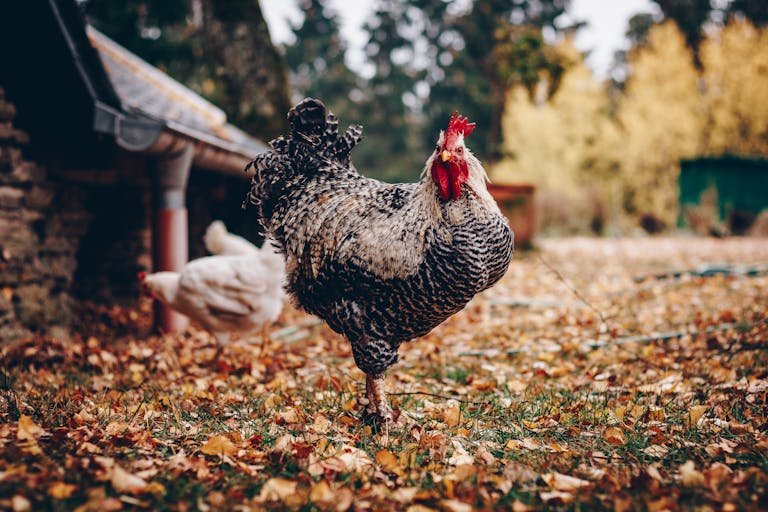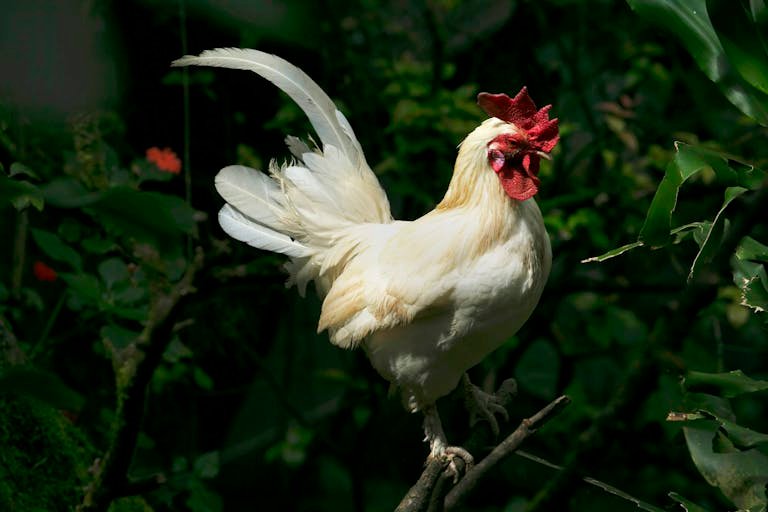Fed Up with Chicken Mites? Here’s Why
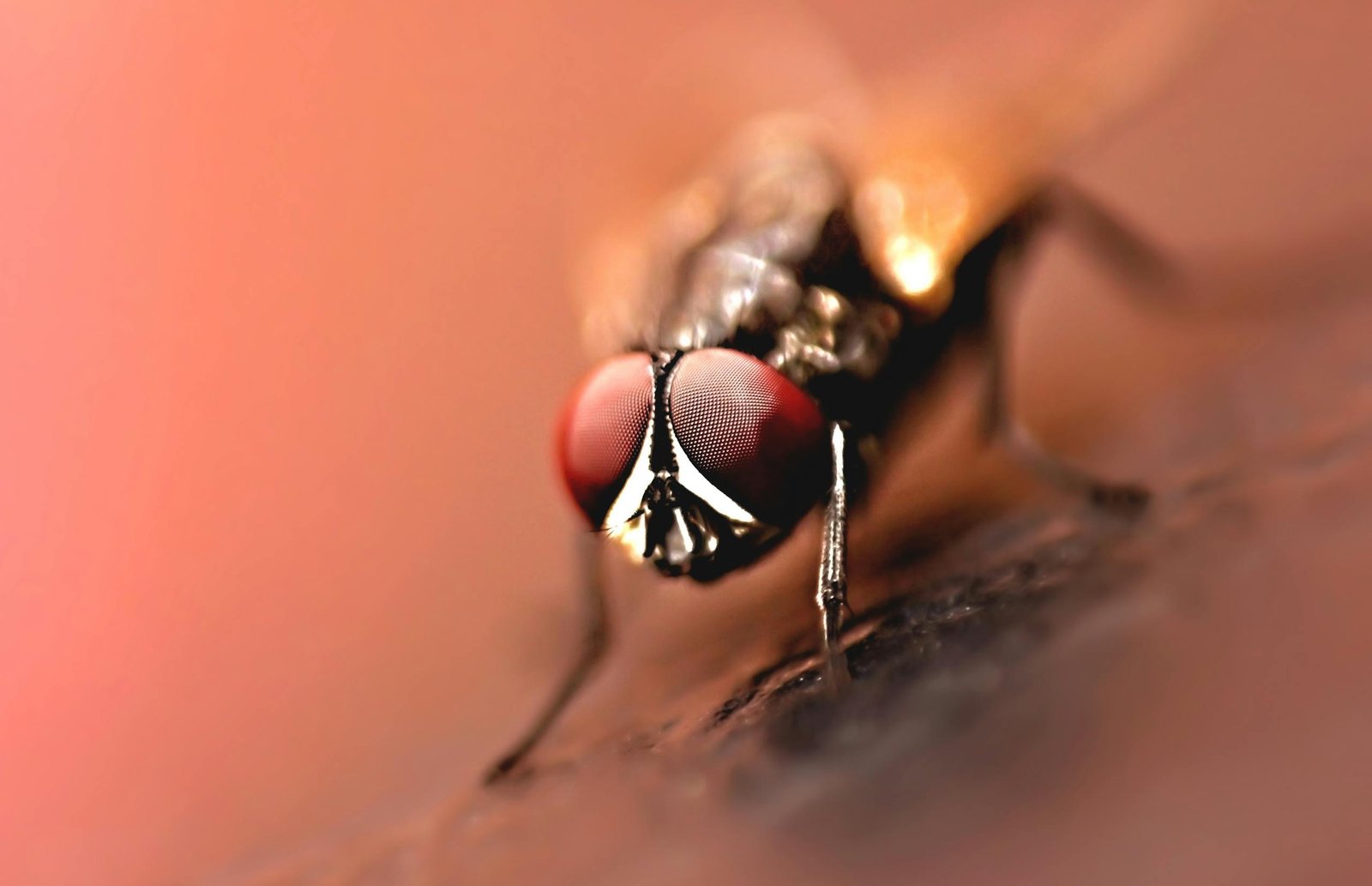
Poultry mites are a major concern for chicken keepers. These tiny parasites can cause discomfort, reduce egg production, and in severe cases, lead to death. If your chickens are itching, pecking, or showing signs of illness, it’s time to act.
In this guide, I will explain everything you need to know about poultry mites, how to identify them, and effective methods to eliminate them.
Chicken Mites
Chicken mites and lice are external parasites that live on or around chickens, feeding on their blood, skin, or feathers. These pests thrive in poorly maintained coops and can rapidly spread across your flock if not addressed promptly.
Why Are Chicken Mites a Problem?
- Health Issues: Mites cause irritation, feather loss, and anemia in chickens, leading to weakness and reduced egg production.
- Spread of Diseases: Some mites transmit diseases to chickens.
- Stress: Infestations cause discomfort and stress, weakening the immune system.
Types of Chicken Mites
There are several types of chicken mites you need to be aware of. Each type has unique behaviors and life cycles, requiring specific treatments.
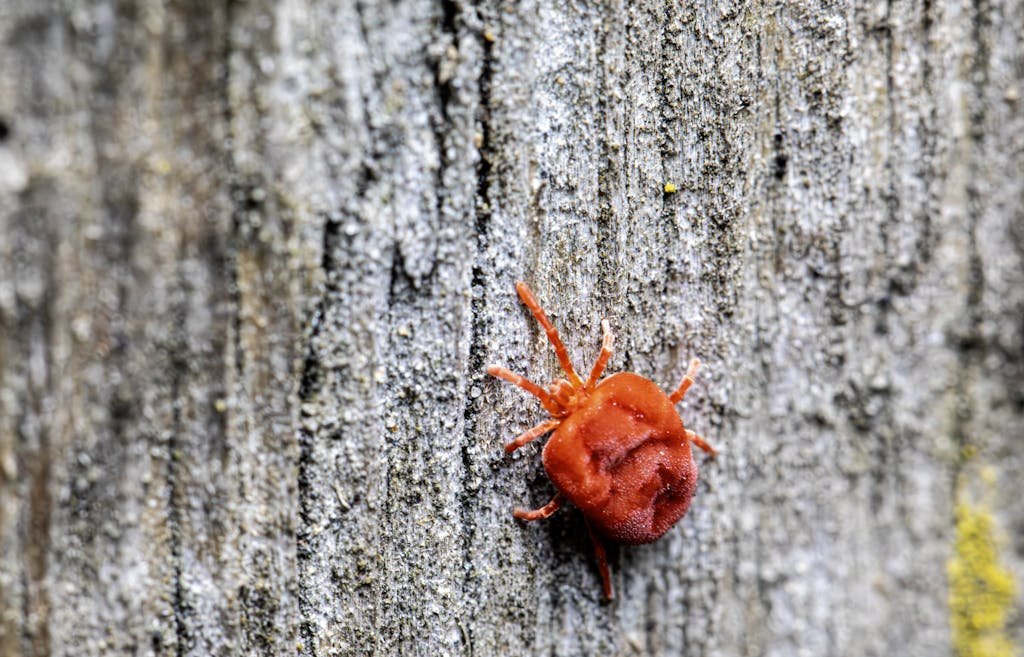
Red Mites (Dermanyssus gallinae)
- These nocturnal mites feed on chickens at night, causing severe irritation and blood loss.
- During the day, they hide in cracks, crevices, and nesting materials within the coop.
- They can survive for months without a host, making them particularly challenging to eliminate.
Northern Fowl Mites (Ornithonyssus sylviarum)
- Unlike red mites, these pests are active both day and night.
- They live and feed on chickens continuously, causing itching, skin irritation, and anemia.
- These mites have a shorter life cycle but reproduce rapidly, leading to infestations in a matter of days.
Scaly Leg Mites (Knemidocoptes mutans)
- These mites burrow under the scales on chickens’ legs and feet, causing thickening and deformity of the skin.
- If untreated, scaly leg mites can lead to permanent damage or secondary infections.
How to Check for Chicken Mites
Regular inspections help detect mite infestations early. Examine the base of feathers, especially around the vent, under the wings, and on the legs. Look for tiny red, brown, or black spots. Feather loss, redness, and scaly legs are common symptoms.
Inspect the coop for dark spots on walls, perches, and nesting boxes, which may indicate mites or their droppings. Since red mites feed at night, use a flashlight to check for crawling mites on your chickens after dark.
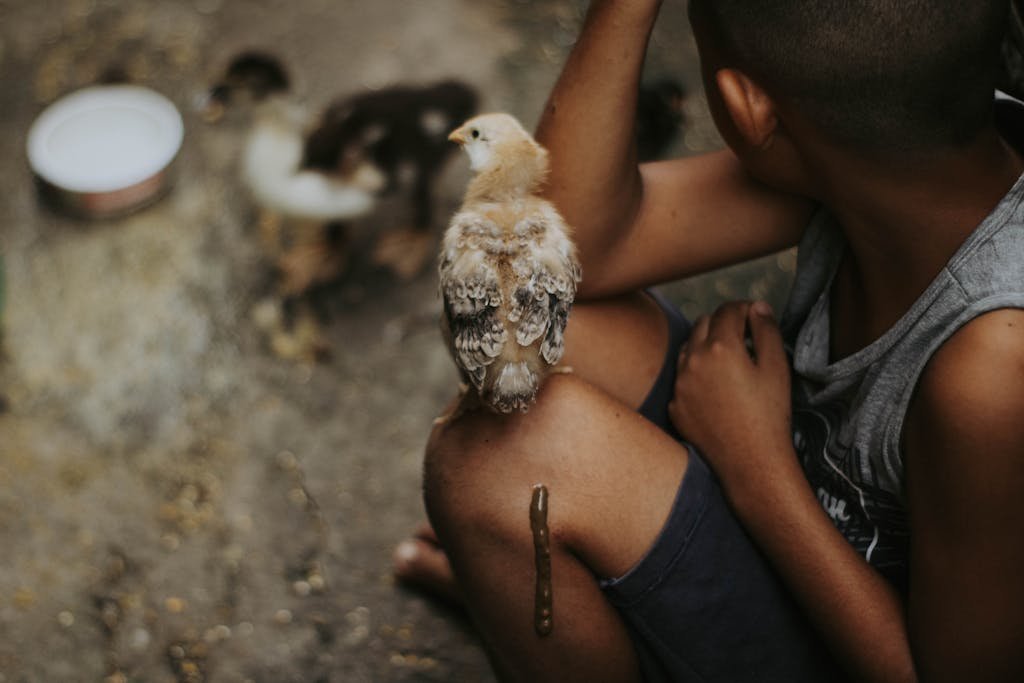
Read Also: Is Oregano Good for Chickens? A Natural Health Boost
Chicken Mite Treatments
Once you confirm a mite infestation, taking swift action is critical. Here’s a step-by-step plan:
1. Thoroughly Clean the Coop
Cleaning and disinfecting the coop is the first step to tackling mites effectively.
- Remove All Bedding and Materials: Dispose of old bedding, nesting materials, and other debris in sealed bags.
- Scrape Surfaces: Use a wire brush or scraper to remove any build-up in cracks and crevices.
- Hot Soapy Water: Scrub all surfaces, including walls, floors, perches, and nesting boxes.
- Disinfect the Coop: Use a poultry-safe disinfectant to eliminate any remaining mites and eggs. Focus on hidden areas where mites may be hiding.
- Replace Damaged Equipment: Remove and replace infested nesting boxes, perches, or feeders.
2. Treat the Birds
After cleaning the coop, treating the birds is crucial to remove mites and provide relief to your chickens.
- Consult a Veterinarian: Seek advice from a vet for the most effective treatment.
- Use Poultry-Specific Insecticides: Apply insecticides designed for chickens to all affected birds. Follow the manufacturer’s instructions carefully.
- Natural Remedies: Consider using diatomaceous earth or neem oil as alternatives. Dust chickens with diatomaceous earth, focusing on areas like the vent and under the wings.
- Repeat Treatments: Since mites have a life cycle, repeat the treatment as recommended to ensure all mites and eggs are eradicated.
3. Prevent Future Infestations
Preventing mites is easier than treating infestations. Here’s how you can keep your flock safe:
- Maintain Hygiene: Clean and disinfect the coop regularly.
- Use Clean Bedding: Replace bedding frequently and ensure it stays dry.
- Inspect New Birds: Quarantine new additions to your flock to prevent introducing mites.
- Seal Cracks: Fill any cracks and crevices in the coop to eliminate hiding spots for mites.
- Mite-Resistant Paint: Apply mite-resistant paint or varnish to coop surfaces for added protection.
Applying Mite Sprays Safely
For effective mite spray application, wear protective clothing, including gloves, a mask, and eye protection. Follow the product instructions for dosage and application.
- Spray all surfaces, focusing on cracks, crevices, nesting boxes, and perches.
- Treat the birds carefully, avoiding their eyes, beaks, and mouths.
- Ventilate the coop afterward and repeat the treatment every 7-10 days until the infestation is gone.

Natural Remedies for Mite Control
If you prefer to avoid chemicals, natural remedies can help manage mites.
- Diatomaceous Earth (DE): Dust chickens, bedding, and coop surfaces with food-grade DE. It kills mites by dehydrating them.
- Neem Oil: Apply diluted neem oil to affected areas for its natural insecticidal properties.
- Garlic and Apple Cider Vinegar: Adding crushed garlic or apple cider vinegar to your chickens’ water boosts their immune systems and makes them less appealing to mites.
Additional Tips for Mite Prevention
Maintain a Clean Environment
- Weekly Spot Cleaning: Remove droppings and debris regularly.
- Deep Clean Monthly: Scrub and disinfect the coop thoroughly every month.
Provide Dust Baths
- Encourage Natural Grooming: Place a dust bath in the coop filled with sand, diatomaceous earth, and wood ash.
- Inspect Regularly: Ensure the dust bath remains clean and free from moisture.
Use Herbal Repellents
- Herbs Like Lavender and Mint: Add them to nesting boxes to deter mites naturally.
- Essential Oils: Mix diluted essential oils with water and spray the coop lightly.
Read Also: Will a Raccoon Kill Chickens? Protect Your Flock Now!
Final Words
Poultry mites are a challenging problem, but with a systematic approach, you can protect your flock. By understanding the types of mites, conducting regular inspections, and applying effective treatments, you can eliminate these pests and keep your chickens healthy. Prevention is equally important, so maintain cleanliness, inspect new birds, and keep the coop dry. Your chickens will reward you with better health and consistent egg production.

